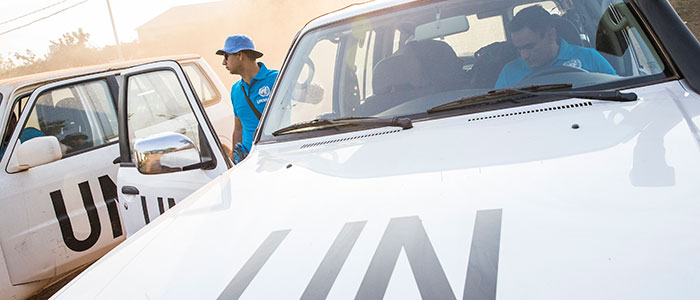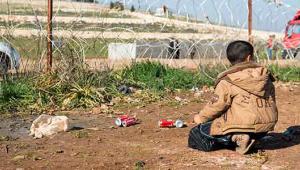UN car convoy aid delivery.jpg

UN vehicles
Sixty-five world leaders, including German chancellor Angela Merkel, will attend as well as more than 5,000 other participants from UN and aid agencies, civil society groups and the private sector.
Stephen O’Brien, UN under-secretary-general for humanitarian affairs and emergency relief coordinator, called the summit a once-in-a-generation opportunity to change the way the world alleviates and prevents suffering.
One major focus of the summit will be on aid finance, which is under severe strain. The funds needed to respond to crises have risen to unprecedented levels, with UN-led appeals alone rising fourfold in the last 10 years, from $5bn to $20bn.
Despite the world contributing more than ever to such appeals – more than 12 times than it did in 2001 – resources are still more than $15bn short of keeping pace with rapidly increasing needs, according to UN secretary general Ban Ki-Moon.
Responses expected to come out of the summit include ways to bridge the gap between humanitarian and development work and what has become known as the Grand Bargain – a deal between aid workers and their donors.
Under the Grant Bargain, donors will agree to provide more and longer-term funding, spanning multiple years, while in return aid agencies will vow to deliver more transparency and efficiency in how these are used.
Already the European Union and a coalition of development banks including the World Bank, the Asian Development Bank and the African Development Bank have released statements outlining how they tend to advance the summit's aims.
The EU pointed to its support for a new education fund, being launched at the summit, designed to ensure access to quality education even in conflict situations.
But while officials seem hopeful the summit will live up to expectations, others, including major aid organisations, have criticised it as an inconsequential talking shop.
Earlier this month, medical aid agency Médicins Sans Frontiéres pulled out of the summit, stating that it had “become a fig-leaf of good intentions”. Others such as Oxfam have highlighted empty rhetoric and inadequate action on what are supposedly key priorities.
One of the main issues is whether the summit will adequately strengthen international humanitarian law, which aid agencies say is being disregarded by many countries, with others complicit for failing to enforce it.
Other issues the summit will address include: improvements to the handling of refugee crises; enhanced gender equality; and better responses to climate change and natural disasters.













